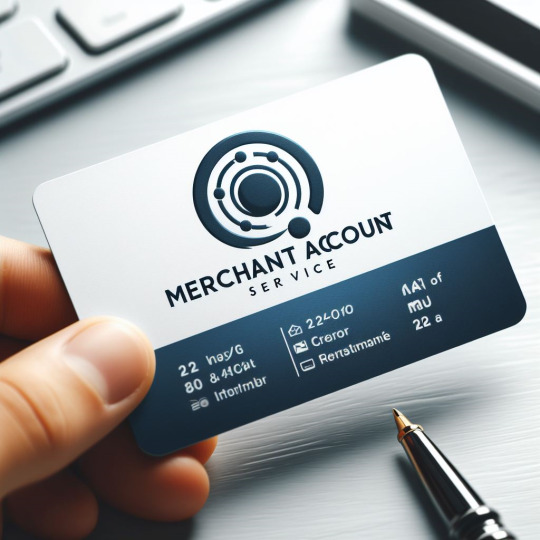#merchant account providers
Explore tagged Tumblr posts
Text
Navigating Complexities in High-Risk Merchant Accounts and Payment Gateways in the UK
For businesses in high-risk industries, securing a reliable payment solution can be challenging, especially in the UK. The complexities surrounding high-risk merchant accounts and payment gateways often discourage some entrepreneurs from pursuing these essential services. However, by understanding the requirements, risks, and available solutions, high-risk businesses can make informed decisions to successfully process payments and maintain business growth.

In this guide, we explore what it means to have a high-risk merchant account in the UK, discuss the challenges involved, and offer insights into how businesses can manage the complexities surrounding high-risk payment gateways.
What Is a High-Risk Merchant Account in the UK?
A high-risk merchant account is a type of bank account specifically designed for businesses that operate in industries considered high-risk by financial institutions. High-risk industries include sectors like online gaming, forex trading, adult entertainment, online dating, and cryptocurrency trading, among others. These industries are often subject to a higher rate of chargebacks, fraud, or regulatory challenges, making them more complex to handle for traditional banks.
For a business to process credit card payments, especially online, a merchant account is essential. However, traditional financial institutions in the UK are often reluctant to work with high-risk industries due to the perceived instability, compliance requirements, and risks associated with these sectors. As a result, specialized high-risk merchant accounts become necessary, offering tailored services to meet the needs of such businesses.
Why Do You Need a High-Risk Merchant Account in the UK?
A high-risk merchant account in the UK provides the framework for businesses to process online payments securely and efficiently, even when operating in challenging industries. This type of account is designed to handle the potential for chargebacks and fraud more effectively than traditional accounts.
Without a high-risk merchant account, businesses face several challenges, including:
Increased Payment Failures: Without a proper payment gateway, high-risk transactions are more likely to be rejected, leading to a poor customer experience.
Revenue Loss: The inability to accept credit card payments from customers can significantly impact revenue, as many consumers prefer to use credit cards for online transactions.
Compliance Issues: High-risk merchant accounts are often better equipped to meet industry-specific regulations, helping businesses stay compliant and avoid penalties.
High-Risk Payment Gateways in the UK: A Vital Solution
A high-risk payment gateway in the UK serves as the technological interface that enables businesses to accept credit card payments securely. For high-risk industries, payment gateways are often equipped with advanced features, such as fraud protection tools, risk management solutions, and chargeback prevention. High-risk payment gateways are essential to ensure that transactions are processed smoothly and securely, even with increased risks.
Businesses in the UK have access to several high-risk payment gateways designed to handle complex transactions. These gateways are integrated with the necessary security and compliance features to help businesses prevent issues related to fraud and chargebacks. Moreover, high-risk payment gateways are structured to accommodate high volumes of transactions, ensuring scalability as the business grows.
Key Challenges in High-Risk Merchant Accounts and Payment Gateways
High-risk merchant accounts and payment gateways in the UK come with their own set of challenges. Here are some of the most common complexities that businesses face:
High Processing Fees: One of the main downsides of a high-risk merchant account is the associated processing fees, which are usually higher than those for standard accounts. Providers often charge a premium due to the risks involved, including the likelihood of chargebacks and fraud.
Strict Compliance Requirements: High-risk businesses are often subject to strict regulatory standards. For instance, payment gateways must adhere to the UK’s Financial Conduct Authority (FCA) regulations and Payment Card Industry Data Security Standards (PCI-DSS). High-risk payment gateways are designed to help businesses stay compliant, but meeting these standards can be costly and time-consuming.
Limited Provider Options: Not all banks or financial institutions offer high-risk merchant accounts in the UK. Businesses may need to work with specialized payment processors, which can limit their options and potentially result in higher fees or restrictive terms.
Chargeback Management: High-risk businesses often experience higher chargeback rates. Chargebacks can be damaging if not managed effectively, as they may lead to penalties or even account termination. High-risk payment gateways, however, often come with built-in chargeback management tools to help businesses reduce these risks.
Increased Security Risks: High-risk businesses face more security threats, such as fraud and data breaches. High-risk payment gateways are equipped with robust fraud detection and prevention measures, but maintaining these protections can increase operational costs and require specialized knowledge.
How to Successfully Manage a High-Risk Merchant Account in the UK
Successfully managing a high-risk merchant account and payment gateway in the UK involves strategic planning and choosing the right providers. Here are some steps to navigate these complexities:
Partner with Specialized Providers: Look for payment processors that specialize in high-risk industries. Such providers have the experience and tools necessary to manage the risks associated with high-risk transactions and offer solutions tailored to your industry.
Implement Advanced Fraud Prevention Tools: Fraud prevention is critical for high-risk businesses. Many high-risk payment gateways offer fraud detection, risk analysis, and automated monitoring tools. Utilizing these features can help reduce fraud attempts and prevent chargebacks.
Manage Chargebacks Effectively: Chargeback management tools can help businesses prevent disputes by identifying potential issues before they occur. It’s essential to understand chargeback codes, maintain accurate transaction records, and respond promptly to disputes.
Stay Compliant with UK Regulations: Compliance is essential to avoid penalties or account suspensions. High-risk payment gateways that adhere to UK regulatory standards can help businesses meet these requirements, providing the tools needed to manage data security, protect customer information, and comply with the FCA and PCI-DSS standards.
Optimize Transaction Processes: High-risk payment gateways often provide detailed analytics on transaction performance. Use these insights to identify and address any issues that could disrupt the customer experience or lead to increased chargebacks.
Finding the Right High-Risk Payment Gateway in the UK
Selecting a high-risk payment gateway in the UK can make a significant difference in how smoothly transactions are processed. Look for a gateway provider with experience in your industry, flexible terms, robust security measures, and efficient customer support. Comparing options and assessing the pros and cons of each provider can help ensure you make the best decision for your business.
Radiant Pay is committed to empowering high-risk businesses in the UK with industry-specific payment solutions. Our high-risk payment gateway and merchant accounts are crafted to meet the demands of complex industries, providing flexibility, security, and compliance.
Final Thoughts
High-risk businesses face unique challenges in securing payment solutions, but with the right partner, these obstacles can be overcome. At Radiant Pay, we make navigating high-risk merchant accounts and payment gateways in the UK straightforward. By providing high-risk businesses with tailored solutions, competitive pricing, and advanced security measures, we help you unlock new opportunities and secure your payments with confidence.
Ready to streamline your payment processing? Reach out to Radiant Pay today to discover how our high-risk merchant accounts and payment gateways can transform your business in the UK.
#high risk payment processing#merchant account providers#high risk merchant accounts in uk#radiant pay
1 note
·
View note
Text

1 note
·
View note
Text
Internet merchant accounts for High risk Business?
Internet merchant accounts for High risk Business? Internet merchant accounts are essential for "high-risk businesses" to conduct online transactions smoothly and efficiently. As the world continues to embrace digitalization, it is becoming increasingly important for businesses to establish an online presence and cater to the needs of their customers. However, certain industries are deemed high-risk due to various factors such as chargeback rates, fraud potential, or legal and regulatory concerns. To navigate these challenges and ensure a "secure payment process", high-risk businesses must obtain "internet merchant accounts" that provide the necessary tools and protection.
High-risk businesses encompass a wide range of industries, including online pharmacies, adult entertainment platforms, and online gambling websites. These industries are considered high-risk due to the potential for fraudulent activities, strict legal and regulatory oversight, or customers disputing charges and demanding chargebacks. Thus, "acquiring an internet merchant account" specifically designed for high-risk businesses is crucial for their survival and growth.

An internet "merchant account for high-risk businesses" offers several advantages. Firstly, it provides businesses with a secure payment gateway that enables credit card transactions and protects sensitive customer information. Given the nature of high-risk businesses, security measures must be in place to prevent unauthorized access, data breaches, and fraudulent activities. Consequently, an internet merchant account with robust security features promotes trust between the business and its customers, increasing customer satisfaction and loyalty.
Another significant benefit of internet "merchant accounts for high-risk businesses" is the ability to manage chargebacks effectively. Chargebacks occur when customers dispute transactions and request a refund directly from their issuing banks. High-risk businesses often experience a higher rate of chargebacks due to factors such as dissatisfied customers, fraud, or illegal activities. Therefore, an effective chargeback management system provided by an internet "merchant Bank account" allows businesses to resolve and mitigate chargeback disputes efficiently, minimizing financial losses and maintaining a positive reputation.
Furthermore, internet merchant accounts cater specifically to the unique needs and legal compliance requirements of "high-risk businesses". Each industry has its regulations and restrictions that necessitate careful attention and adherence. For instance, pharmaceutical businesses must comply with strict FDA guidelines, while online gambling platforms must follow local and international gambling laws. By partnering with a "merchant account provider specializing in high-risk businesses", these organizations can ensure compliance and avoid penalties, legal issues, and potential shutdowns.
In conclusion, "high-risk businesses require internet merchant accounts" to facilitate secure and efficient online transactions. These accounts provide crucial benefits such as secure payment gateways, effective chargeback management systems, and compliance with industry-specific regulations. By obtaining an internet merchant account designed for high-risk businesses, organizations can navigate the challenges associated with their industries, protect their customers' sensitive information, and ensure a smooth payment process. Embracing the digital era and establishing a strong online presence are crucial for high-risk businesses to remain competitive and thrive in today's market.
Offshore Gateways merchant accounts | Merchant accounts | Merchant accounts online | Internet merchant accounts | Set up merchant accounts | Merchant account fees in USA | Merchant account fees in UK | Open merchant account online | Merchant accounts credit card | Merchant Bank Account | Merchant account providers | High risk merchant account instant approval | High Risk merchant account in USA | High Risk merchant account in UK | High Risk payment Gateway | Forex merchant account | Gambling Merchant Account | Best merchant account services | Online casino merchant account providers |
#Offshore Gateways merchant accounts#Merchant accounts#Merchant accounts online#Internet merchant accounts#Set up merchant accounts#Merchant account fees in USA#Merchant account fees in UK#Open merchant account online#Merchant accounts credit card#Merchant Bank Account#Merchant account providers#High risk merchant account instant approval#High Risk merchant account in USA#High Risk merchant account in UK#High Risk payment Gateway#Forex merchant account#Gambling Merchant Account#Best merchant account services#Online casino merchant account providers#offhsoregateways
0 notes
Text
How much does it cost to open a merchant account?

(Human directed ai content.)
Opening a merchant account is a crucial step for businesses looking to accept credit and debit card payments. Whether you operate a brick-and-mortar store or an online business, having the ability to process card payments can significantly expand your customer base and streamline transactions. However, the cost of opening and maintaining a merchant account can vary depending on several factors. In this article, we'll explore the typical expenses associated with setting up a merchant account and factors that influence these costs.
Initial Setup Fees:
One of the primary costs associated with opening a merchant account is the initial setup fee. This fee covers the administrative costs of establishing the account and can range from zero to several hundred dollars. Some merchant account providers may offer promotions or waive setup fees for new customers, so it's essential to shop around and compare offers before committing to a provider.
Monthly Service Fees:
In addition to the setup fee, most merchant account providers charge a monthly service fee to maintain the account. This fee covers ongoing support, account maintenance, and access to payment processing services. Monthly service fees can vary widely depending on the provider and the level of service you require. Basic accounts may have lower monthly fees, while accounts with additional features or higher transaction volumes may incur higher fees.
Transaction Fees:
Every time a customer makes a purchase using a credit or debit card, a transaction fee is charged. This fee typically consists of a flat rate plus a percentage of the transaction amount. The exact transaction fee can vary depending on factors such as the type of card used (credit or debit), the card network (Visa, Mastercard, etc.), and the volume of transactions processed each month. It's essential to understand the transaction fee structure offered by your merchant account provider and how it will impact your overall costs.
Discount Rates:
In addition to transaction fees, merchants are also charged a discount rate on each transaction. The discount rate is a percentage of the transaction amount that is deducted by the merchant account provider as a processing fee. This fee is typically higher for credit card transactions than for debit card transactions, reflecting the higher risk and processing costs associated with credit cards. Like transaction fees, discount rates can vary depending on factors such as card type, card network, and transaction volume.
Additional Fees:
In addition to the fees mentioned above, merchants may also encounter other charges, such as:
Chargeback fees: Charged when a customer disputes a transaction and the funds are reversed.
PCI compliance fees: Charged to ensure compliance with Payment Card Industry Data Security Standards.
Equipment costs: If you require hardware such as card readers or point-of-sale terminals, there may be additional costs associated with purchasing or leasing this equipment.
Factors Influencing Costs:
Several factors can influence the cost of opening and maintaining a merchant account, including:
Business type: Certain industries, such as high-risk businesses or those with a history of chargebacks, may face higher fees and stricter requirements.
Processing volume: Higher transaction volumes may qualify you for lower fees or preferential rates with some providers.
Contract terms: Long-term contracts may offer lower rates but can also lock you into a provider with limited flexibility.
Provider reputation: Established providers with a track record of reliability and excellent customer service may charge higher fees than newer or less reputable providers.
Conclusion:
The cost of opening a merchant account can vary significantly depending on your business needs, transaction volume, and the provider you choose. While there are several fees to consider, including setup fees, monthly service fees, transaction fees, discount rates, and additional charges, it's essential to evaluate these costs in the context of the value and convenience that accepting card payments can bring to your business. By comparing offers from multiple providers and negotiating terms where possible, you can minimize costs and find a merchant account solution that meets your needs without breaking the bank.
#merchant account#merchant account pricing#merchant account fees#merchant account rates#how to get a merchant account#merchant account providers#what is a merchant account#merchant account processing#how to open a merchant account#merchant services#merchant account application#how does a merchant account work#how to open merchant account without ssn#how to set up a merchant account#how to create a merchant account#are you able to open merchant account with itin
1 note
·
View note
Text

#Echeck#Electronic Check#Merchant Services#Payment Processing#Merchant Account#Payment Processing Companies#Payment gateway providers#Best Merchant Services#High Risk Merchant Account#Echeck Account#Echeck Payment Processor#Echeck Payment#Echeck Payment Processing#Electronic Check Payment#what is an echeck#Check 21#echeck casino#e commerce payment processing
3 notes
·
View notes
Text

seems like it can't be closed 😭
#office life#worklife balance#happylife#meme#funny#funny meme#tuesday meme#office memes#paymentgateway#merchant account provider#merchantaccount
4 notes
·
View notes
Text
Merchant account services are a set of financial services that facilitate businesses to accept credit, debit cards and other types of electronic payments. Click here to apply for merchant account.
#Merchant account#merchant account provider#open merchant account#merchant account for small business
2 notes
·
View notes
Text
#Echeck#Electronic Check#Merchant Services#Payment Processing#Merchant Account#Payment Processing Companies#Payment gateway providers#Best Merchant Services#High Risk Merchant Account#Echeck Account
1 note
·
View note
Text
https://www.wetranxact.co.uk/key-considerations-for-selecting-a-high-risk-merchant-account-provider/
Key Considerations for Selecting a High-Risk Merchant Account Provider
All businesses, especially those operating in high-risk industries, need to choose a high-risk merchant account provider that is right for them. It could be a crucial factor in their success, which is why businesses in adult entertainment, e-commerce, and online gambling can’t survive without them. But what if you’re new to the term? What exactly is a high-risk merchant account? Let’s look at its definition.
0 notes
Text

Casino Merchant Account Worldwide - Webpays
Make yourself familiar with the challenges a merchant has to face while getting a casino merchant account worldwide. - webpays
#casinomerchantaccount#casinoonline#casino#casinomerchant#payment gateway integration#payment gateway solutions#payment gateway providers#payments#paymentgateway#merchantaccount#high risk merchant account
0 notes
Text

Top 5 Offshore Merchant Solutions Providers in Europe
Explore the top 5 offshore merchant solutions providers in Europe, including Radiant Pay, a leader in secure and reliable payment processing services. These providers offer seamless global transaction support, competitive rates, and compliance with international regulations. Discover how Radiant Pay and other industry leaders can help your business with offshore payment gateways and merchant accounts, ensuring secure transactions and exceptional customer service.
1 note
·
View note
Text
Exploring the Top 10 Offshore Payment Processing Providers: A Comprehensive Guide
Introduction
In the globalized world, offshore payment processing has become crucial for businesses expanding their reach globally. To help you navigate the vast landscape of offshore payment solutions, we have compiled a list of the top 10 providers. In this blog, we will explore these providers, and discuss their key features, benefits, and overall performance. Whether you are an e-commerce business or a digital entrepreneur, understanding the strengths and weaknesses of these payment processors will empower you to make an informed decision for your offshore payment needs.

PayPal
PayPal needs no introduction, as it remains one of the oldest and most widely used offshore payment processing providers. Known for its user-friendly interface and extensive global reach, PayPal allows businesses to accept payments in multiple currencies. With robust security measures and fraud prevention tools, PayPal ensures safe transactions for merchants and customers alike. Its integration options, including APIs and plugins, make it convenient to integrate PayPal into various platforms. While PayPal's fees can vary based on transaction volume, its reputation and reliability make it a top choice for many businesses.
Skrill
Skrill is another prominent offshore payment processor that offers a wide range of services tailored to businesses and individuals. It provides multi-currency support, allowing transactions in over 40 currencies worldwide. Skrill's quick and secure payment processing, combined with its intuitive interface, makes it a preferred choice for merchants and freelancers. With Skrill, businesses can integrate payment options seamlessly into their websites or mobile apps. While Skrill's transaction fees are competitive, it is essential to consider the specific needs of your business when evaluating its pricing structure.
WebPays
WebPays, a rising player in the offshore payment processing arena, offers a range of services tailored to businesses of all sizes. It offers a wide range of payment methods, including credit cards, e-wallets, cryptocurrencies, and localized options. WebPays' international reach covers over 150+ countries and supports 80+ currencies, facilitating smooth cross-border transactions. Its integration options (API & Plugins) allow businesses to incorporate payment processing into their websites or applications seamlessly. WebPays' intelligent routing and fraud prevention tools ensure secure transactions. While specific pricing details may vary, WebPays aims to offer competitive rates and transparent pricing models. As a growing provider, WebPays dedicated customer support and aimed to deliver efficient and reliable offshore payment solutions.
Payoneer
Payoneer has gained popularity as a reliable offshore payment gateway provider for freelancers and international e-commerce businesses. It offers a global payment platform that supports multiple currencies, facilitating easy cross-border transactions. Payoneer's integration options are extensive, allowing businesses to streamline their payment processes. Additionally, Payoneer offers added features such as international money transfers and the ability to receive payments from various marketplaces and platforms. While Payoneer does charge certain fees, its competitive rates and user-friendly interface make it a top choice for individuals and businesses looking for offshore payment solutions.
2Checkout
With a strong focus on e-commerce, 2Checkout provides a comprehensive suite of payment solutions for online businesses. It offers a wide range of payment methods, including credit cards, PayPal, and localized options, enabling businesses to cater to diverse customer preferences. 2Checkout's global reach covers over 200 countries and supports more than 87 currencies. It also provides robust fraud prevention tools and secure payment processing. While 2Checkout's pricing structure may vary based on specific business requirements, its e-commerce-centric features and global coverage make it a valuable choice for online merchants.
Worldpay
Worldpay is a leading payment processing provider known for its extensive range of solutions and global reach. With a presence in over 146 countries and support for over 120 currencies, Worldpay offers businesses the ability to expand internationally. Its feature-rich platform includes advanced fraud protection, recurring billing, and customizable payment options. Worldpay's flexibility in integrating with various platforms and its commitment to security make it a trusted choice for businesses of all sizes. While its pricing may vary based on specific business needs, Worldpay's reputation and comprehensive services make it an attractive offshore payment processing provider.
Adyen
Adyen has gained recognition as a cutting-edge payment processor, catering to the needs of global enterprises. Its unified platform supports multiple payment methods and currencies, offering a seamless customer experience. With a focus on scalability and customization, Adyen provides businesses with the flexibility to adapt to evolving market demands. Adyen's competitive pricing, extensive features, dedicated support, and emphasis on innovation make it a strong contender for businesses requiring advanced offshore payment solutions.
Stripe
Stripe has become increasingly popular for its developer-friendly payment processing solutions. Its powerful API and easy integration options have made it a go-to choice for businesses seeking customized payment solutions. Stripe supports multi-currency transactions and provides robust security features, including machine learning-based fraud prevention. With its suite of tools and features, such as subscription management and analytics, Stripe offers businesses the ability to optimize their payment processes. While Stripe's pricing can vary based on specific needs, its developer-centric approach and focus on user experience have earned it a prominent position in the offshore payment processing landscape.
CCBill
CCBill specializes in providing payment processing solutions for high-risk industries. With a strong emphasis on security and compliance, CCBill offers merchants a secure platform to process payments. It supports multiple currencies and provides customizable payment options. CCBill's features include subscription management, fraud protection, and detailed reporting. While its pricing structure may have some complexities, CCBill's expertise in high-risk industries and its robust payment processing capabilities make it a top choice for businesses operating in these sectors.
BitPay
BitPay stands out as a leading offshore payment processor specializing in cryptocurrencies. It enables businesses to accept Bitcoin and other digital currencies as payment, providing flexibility and catering to a growing customer base. BitPay offers options for settlement in both cryptocurrencies and traditional currencies. With its robust security features, BitPay ensures safe and secure transactions. It also provides integrations for e-commerce platforms and point-of-sale systems. While BitPay's fees are competitive, its focus on cryptocurrencies and its ability to simplify crypto transactions make it an attractive choice for businesses venturing into the digital currency space.
Conclusion
Selecting the right offshore payment processing provider is vital for businesses aiming to expand globally. The top 10 providers offer unique features, robust security measures, global reach, and various integration options. By considering factors such as security, global coverage, fees, payment methods, and customer support, businesses can make informed decisions aligned with their specific requirements. Conduct further research, evaluate each provider's offerings, and compare them to your business needs to identify the most suitable offshore payment processing solution for your venture's success. After scrutinizing all ten, we conclude that WebPays is an ideal offshore merchant account provider for small businesses in Europe. It has ample features, top-notch security, transparent pricing, and dedicated customer support, and it offers its services at the lowest MDR in all of Europe. To get quick approval, Apply Now.
Source url: https://paymentsserviceprovider.wordpress.com/2023/07/03/exploring-the-top-10-offshore-payment-processing-providers-a-comprehensive-guide/
0 notes
Text

What is a Merchant Account and do I need one?
A "merchant account" and its functions is accurate. It's indeed a crucial financial tool that enables businesses to accept electronic payments from customers using debit and credit cards. This system streamlines the payment process and enhances convenience for both businesses and customers. The points you've mentioned about the flow of funds, the holding period, and the associated fees provide a comprehensive overview of how merchant accounts operate.
Merchant accounts offer several benefits to businesses:
Payment Flexibility: By accepting debit and credit cards, businesses can accommodate a broader range of customer payment preferences.
Convenience: Customers appreciate the convenience of paying with cards, reducing the need for carrying cash.
Professionalism: Accepting card payments can enhance a business's reputation and professionalism, which can be particularly important for online or retail businesses.
Increased Sales: Offering multiple payment options, including card payments, can lead to increased sales as customers are more likely to make purchases when their preferred payment methods are available.
Reduced Risk: Handling fewer cash transactions can help reduce the risk of theft or loss.
Online Transactions: Merchant accounts are essential for businesses conducting online transactions, as they allow seamless integration with e-commerce platforms and payment gateways.
Financial Insights: Some merchant service providers offer tools and reports that provide valuable insights into sales trends and customer behavior.
Fraud Protection: Payment processors often include security features and fraud detection mechanisms to protect both the business and its customers.
Global Transactions: Businesses can accept payments from customers around the world, opening up opportunities for international sales.
It's important for businesses to choose their merchant service provider carefully. Comparing fee structures, contract terms, customer support, and available features can help businesses make an informed decision that aligns with their needs. As technology and payment systems continue to evolve, merchant accounts remain a crucial component of modern commerce.
#Offshore Gateways merchant accounts | #Merchant accounts | #Merchant accounts online | #Internet merchant accounts | #Set up merchant accounts | #Merchant account center | #Merchant account fees | #Merchant accounts credit card | #Merchant bank account | #Merchant accounts for small businesses | #Merchant account providers | #Open merchant account online |
#merchant account providers#cryptocurrency#open merchant account online#merchant accounts#merchant accounts online#internet merchant accounts#set up merchant accounts#merchant account center#merchant account fees#merchant accounts credit card#merchant bank account#Merchant accounts for small businesses
0 notes
Text
Do You Need Good Credit for a Merchant Account?

(Human directed ai content.)
In today's digital age, having a merchant account is crucial for businesses of all sizes. Whether you're a small startup or an established corporation, accepting credit and debit card payments is often essential for maximizing sales and providing convenience to customers. However, one common concern among business owners is whether good credit is necessary to obtain a merchant account. Let's delve into this topic to understand the role of creditworthiness in acquiring a merchant account.
Firstly, it's essential to grasp the concept of a merchant account. A merchant account is a type of bank account that allows businesses to accept payments via debit or credit cards. When a customer makes a card payment, the funds are transferred from the customer's account to the merchant account. From there, the funds are typically deposited into the business's regular bank account within a few days, minus any fees charged by the payment processor.
Now, onto the question of creditworthiness. While it's true that some payment processors may conduct credit checks as part of their application process, having perfect credit isn't always a prerequisite for obtaining a merchant account. Many factors come into play when payment processors assess an applicant's eligibility, and credit history is just one of them.
Payment processors may consider various factors when evaluating a merchant account application, including:
Business Type and Industry: The nature of your business and the industry you operate in can influence the risk assessment process. Some industries are considered higher risk than others, such as travel, adult entertainment, or e-commerce.
Processing History: If your business has a history of processing payments, especially with the same payment processor, it can positively impact your application. A track record of successful transactions demonstrates reliability and reduces perceived risk.
Business Financials: Payment processors may review your business's financial statements, including revenue, cash flow, and profitability. A healthy financial position can enhance your chances of approval, even if your personal credit isn't stellar.
Chargeback History: A high volume of chargebacks can raise concerns for payment processors, as it suggests potential issues with customer satisfaction or service quality. Minimizing chargebacks is essential for maintaining a positive relationship with payment processors.
Compliance and Legal Factors: Adherence to industry regulations, such as PCI DSS (Payment Card Industry Data Security Standard), is crucial for securing a merchant account. Compliance with anti-money laundering (AML) and Know Your Customer (KYC) requirements is also essential.
While credit checks are a standard part of the application process for some merchant account providers, there are alternative options available for businesses with less-than-perfect credit. For instance, high-risk merchant account providers specialize in serving businesses with higher perceived risk due to factors like poor credit, industry type, or processing history. These providers often offer tailored solutions and may be more lenient in their credit assessment criteria.
Additionally, some payment processors offer "instant approval" or simplified application processes that may not involve extensive credit checks. However, these options may come with higher fees or more stringent terms to offset the perceived risk.
Ultimately, while good credit can certainly improve your chances of obtaining a merchant account and may lead to more favorable terms, it's not always a deal-breaker. Businesses with less-than-perfect credit can still explore options for accepting card payments and finding a payment processor that meets their needs.
In conclusion, while good credit may be beneficial when applying for a merchant account, it's not necessarily a requirement. Payment processors consider various factors beyond credit history when assessing an applicant's eligibility, including business type, processing history, financials, and compliance measures. Businesses with less-than-perfect credit can explore alternative options, such as high-risk merchant account providers, to secure the payment processing solutions they need to thrive in today's competitive market.
#merchant account#merchant account fees#merchant account rates#merchant services#what is a merchant account#merchant account pricing#high risk merchant account#merchant account providers#credit card processing#merchant accounts#high risk merchant account fees#merchant account processing#high risk merchant account approval#merchant account for high risk business#what is a high risk merchant account#high risk merchant accounts
1 note
·
View note
Text

#Echeck#Electronic Check#Merchant Services#Payment Processing#Merchant Account#Payment Processing Companies#Payment gateway providers#Best Merchant Services#High Risk Merchant Account#Echeck Account#Echeck Payment Processor#Echeck Payment#Echeck Payment Processing#Electronic Check Payment#what is an echeck#Check 21#echeck casino#e commerce payment processing
4 notes
·
View notes